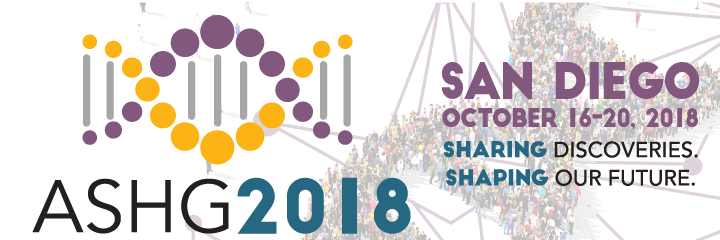We are gearing up for the annual American Society of Human Genetics (ASHG) meeting next week in San Diego, and are especially excited to debut our new ApolloTM platform for multi-omic and clinical data science exploration, analysis, and discovery. ApolloTM provides translational researchers with a scalable cloud environment, flexible data models, intuitive analysis and visualization tools to simplify research workflows for R&D teams globally and dramatically improve the efficiency of research organizations.
Visit DNAnexus in booth 622 to learn more about how to leverage our newApolloTM to inform decision making, save time, and maximize value at each step of the drug discovery process. Stop by our booth anytime during the conference, or email us to schedule a meeting with a member of our science team.
Lunchtime Talk:
Leveraging Translational Informatics for the Advancement of Drug Discovery & Improved Clinical Outcomes
Thursday, October 18th, 12:30pm – 1:45pm
San Diego Convention Center, Upper Level, Room 30E
Join us to learn how biopharma customer MedImmune and academic medical center, Baylor College of Medicine’s Human Genome Sequencing Center are leveraging massive volumes of biomedical data to gain better insights into biological, environmental, and behavioral factors that influence health.
Speakers:
 David Fenstermacher, PhD, Vice President R&D & Bioinformatics, MedImmune
David Fenstermacher, PhD, Vice President R&D & Bioinformatics, MedImmune- Will Salerno, PhD, Director Genome Informatics atBaylor College of Medicine Human Genome Sequencing Center

- Brady Davis, VP Strategy, DNAnexus
Lunch will be provided; RSVP to reserve your spot!
Activities in DNAnexus Booth 622:
Visualization Hour – Come Explore GWAS data in 3-D, using virtual reality!
Human brains are wired for spatial reasoning, making virtual reality a potentially powerful way for scientists to achieve an intuitive understanding of data. To test VR on genomic data, we combined two iconic visualizations in genomics, the Manhattan plot and the circos plot, into a fully immersive data exploration experience called BigTop. Come explore the GWAS circus with us and learn about other exciting visualization projects at DNAnexus!
- Wednesday, 10/17, 12-1pm
- Thursday, 10/18, 12-1pm
- Friday, 10/19, 12-1pm
Translational Informatics Hour – Elevating Translational Informatics
Come demo the new DNAnexus ApolloTM and hear how biopharma customer MedImmune is using it to inform decision making, save time, and maximize value at each step of the drug discovery process.
- Wednesday, 10/17, 2-3pm
- Thursday, 10/18, 2-3pm
- Friday, 10/19, 2-3pm
Meet the xVantage Group
Come meet members of xVantage Group, a dedicated team with deep technical and scientific expertise, ready to create innovative and tailored solutions for customers and partners. From data ingestion to pipeline and software development, learn more about the broad range of services and customers xVantage is supporting.
- Wednesday, 10/17, 10-11am
- Thursday, 10/18, 10-11am
Customer Talks:
| Wednesday, October 17th | |||
| Time | Title | Speaker | Location |
| 5:30 PM | Sequencing of whole genome, exome and transcriptome for pediatric precision oncology: Somatic variants and actionable findings from 253 patients enrolled in the Genomes for Kids study | Scott Newman, St Jude Children’s Research Hospital | Session #25 – Integrated Variant Analysis in Cancer Genomics; Ballroom 20BC |
| 6:15 PM | Structural variation across human populations and families in more than 37,000 whole-genomes | Will Salerno, Human Genome Sequencing Center, Baylor College of Medicine | Session #33 – Characterization of Structural Variation in Population Controls and Disease; Ballroom 20A |
Posters Featuring DNAnexus:
| Wednesday, October 17th | ||
| 2:00pm-3:00pm | ||
| Poster Number | Title | Affiliation |
| PgmNr 1761 | Variant identification from whole genome sequencing at the UPMC Genome Center | UPMC Genome Center |
| 3:00pm-4:00pm | ||
| Poster Number | Title | Affiliation |
| PgmNr 1998 | Hi-C-based characterization of the landscape of physically interacting regions and interaction mechanisms across six human cell lines using HiPPIE2. | University of Pennsylvania, DNAnexus |
| PgmNr 1554 | A high-quality benchmark dataset of SV calls from multiple technologies | Illumina, Baylor College of medicine |
| PgmNr 3186 | Identification of novel structural variations affecting common and complex disease risks with >16,000 whole genome sequences from ARIC and HCHS/SOL. | Human Genetics Center, University of Texas Health Science Center, Baylor College of Medicine HGSC, Albert Einstein College of Medicine, DNAnexus, Fred Hutchinson Cancer Research Center, University of Washington, Johns Hopskins University |
| Thursday, October 18th, 3:00pm-4:00pm | ||
| Poster Number | Title | Affiliation |
| PgmNr 1222 | Novel mutations of SCN9A gene in patient with congenital insensitivity to pain identified by whole genome sequencing. | Intermountain Healthcare |
| PgmNr 1648 | How well can you detect structural variants: Towards a standard framework to benchmark human structural variation. | NIST, NHGRI, Genome in a Bottle Consortium Baylor College of Medicine HGSC, PacBio, Spiral Genetics, NCBI, BioNano Genomics, 10x Genomics, Max Planck Institute, USC, Boston University Medical School, DNAnexus, Joint Initiative for Metrology in Biology |
| Friday, October 19th, 2:00pm-3:00pm | ||
| Poster Number | Title | Affiliation |
| PgmNr 1439 | Are we close to constructing a fully diploid view of the human genome? | DNAnexus |
| PgmNr 1505 | How well can we create phased, diploid, human genomes? An assessment of FALCON-Unzip phasing using a human trio. | DNAnexus |
| PgmNr 2732 | A population genetics approach to discover genome-wide saturation of structural variants from 22,600 human genomes | Center for Integrative Bioinformatics Vienna, University of Vienna, Baylor College of Medicine HGSC |


.png)
.png)
.png)